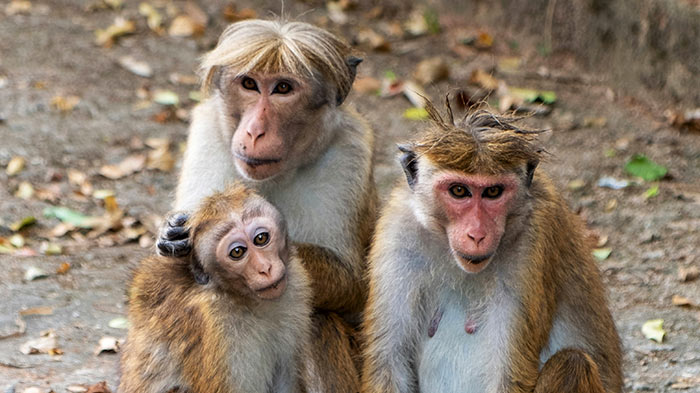New plan to control growing monkey population in Sri Lanka

(Photo by Silver Ringvee on Unsplash)
A report containing recommendations on managing animals in Sri Lanka that harm local agriculture, including monkeys and toque monkeys, is set to be submitted today (December 9).
It will be presented to the Ministry of Environment and the Ministry of Agriculture, according to the Centre for Environment and Nature Studies.
Dr. Ravindra Kariyawasam, the National Coordinator of the center, stated to the media that the population of monkeys and toque monkeys in Sri Lanka has significantly increased, and the report includes both short-term and long-term proposals to manage this situation.
“The monkey population in Sri Lanka has grown. The primary reason is the lack of natural predators to control their numbers. Additionally, as food resources in the forests have dwindled and food availability near cultivation areas has increased, these animals have started moving closer to human habitats. We have proposed creating a coordinated mechanism involving 15 organizations in Sri Lanka. Today, we are presenting the Minister of Environment with a set of steps to manage these animal populations.”
Dr. Kariyawasam also referred to measures implemented in India to address similar situations.
“In India, several studies have been conducted in regions like Jammu and Kashmir. They don’t only focus on sterilization surgeries but also on mixing contraceptive drugs with food or using hormonal sterilization methods. In some countries, even viruses have been used. For Sri Lanka, we should particularly consider administering hormonal contraceptives through food. This must be done systematically to prevent the risk of extinction of the endemic Macaca sinica (Sri Lankan toque monkey). Any such measures should follow proper research before implementation.”
Latest Headlines in Sri Lanka
- Ganemulla Sanjeewa shot dead at Colombo Hulftsdorp court complex February 19, 2025
- Sri Lanka launches 24/7 passport issuance service February 19, 2025
- Father and daughter killed in Middeniya shooting – son critically injured February 19, 2025
- Cop who aided ‘Harak Kata’ escape nabbed in India February 18, 2025
- Sri Lanka to form committee to reduce surgery waiting lists in hospitals February 18, 2025


